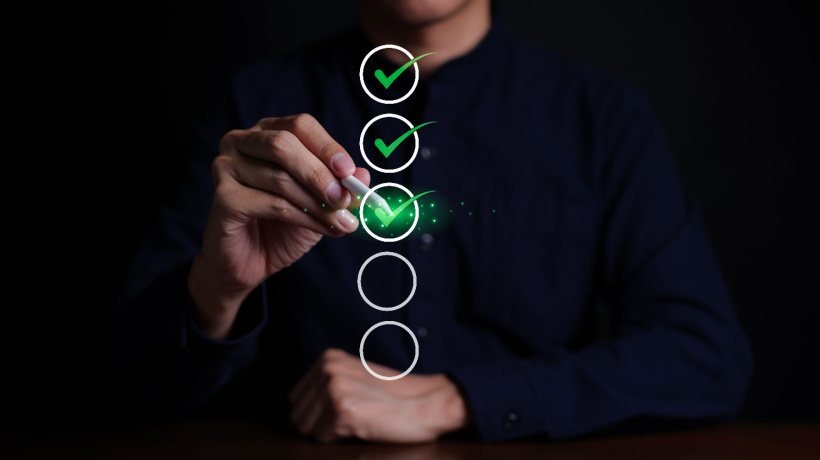How Self-Assessment Enhances Personalized eLearning
One of the key elements that drive engagement, retention, and success in eLearning is the ability to personalize learning. Each learner comes with a unique set of skills, experiences, and goals, making a “one-size-fits-all” approach less effective. This is where self-assessment plays a critical role. By empowering learners to assess their own progress and knowledge, self-assessment allows for a more tailored, dynamic learning path, boosting motivation and fostering deeper understanding. Self-assessment in eLearning isn’t just about checking whether learners can answer questions correctly; it’s about enabling them to reflect on their learning journey, set goals, and take ownership of their education. It helps to identify gaps in knowledge, refine learning strategies, and track improvements, leading to a more engaged and autonomous learner. Let’s explore how self-assessment contributes to personalized eLearning paths and the impact it has on learner outcomes.
Why Self-Assessment Is A Powerful Tool For Personalized eLearning
1. Empowering Learners To Take Control
Self-assessment encourages learners to actively engage with the material, rather than passively consuming content. When learners evaluate their progress through quizzes, surveys, or reflective activities, they gain insights into their strengths and weaknesses. This process promotes a sense of ownership and autonomy over their learning journey.
Gregor Schneider, a seasoned entrepreneur and the founder of Personality Path, highlights the power of self-assessment in personal growth. His platform, which has guided over 2 million people in understanding their unique traits, shows that self-reflection is key to unlocking potential. By recognizing one’s personality type, individuals can choose learning strategies that align with their cognitive strengths and preferences, thereby maximizing the effectiveness of their learning experience.
2. Customizing Learning Experiences
One of the most significant advantages of self-assessment in eLearning is its ability to customize the learning experience. By providing learners with the tools to assess their current knowledge, preferences, and goals, eLearning platforms can create personalized learning paths that cater to individual needs. This personalization enhances the learning experience by ensuring that the content is relevant, engaging, and appropriately challenging.
For example, Gurpreet Khokhar, the founder and CEO of Indian Chess Company, uses assessments to tailor chess training programs based on players’ skill levels and progress. His personalized approach ensures that learners aren’t overwhelmed with information that’s too advanced or underwhelmed with material that’s too basic, which is a common issue in traditional, non-personalized learning environments.
3. Building Confidence And Motivation
Self-assessment plays a crucial role in boosting learner confidence. By regularly reflecting on their progress, learners can see how much they’ve learned and where they still need to improve. This not only helps them stay motivated but also reinforces the idea that learning is a continuous process, not a destination. As learners begin to realize their strengths, they feel more empowered to take on new challenges and strive for further improvement.
Bhavin Swadas, a finance expert and the founder of Mine My Deal, emphasizes the importance of confidence-building in personal development. His business helps people save money by using tools that guide them through daily financial decisions. By applying similar self-assessment tools in eLearning, learners can track their academic progress, giving them the confidence to achieve their long-term goals.
4. Setting Clear, Achievable Goals
Effective self-assessment goes beyond simply identifying strengths and weaknesses; it also helps learners set clear, achievable goals. This ability to define and track progress toward specific objectives is crucial for maintaining focus and direction in a learning path. Learners who are actively involved in assessing their own learning tend to be more goal-oriented, as they have a clearer understanding of what they need to achieve.
5. Continuous Improvement Through Iteration
Self-assessment fosters a culture of continuous improvement. In personalized eLearning environments, learners are encouraged to reassess their progress regularly. By doing so, they can adapt their strategies, explore new resources, and refine their understanding over time. This iterative process is particularly effective for complex subjects, where mastery is achieved gradually through repeated exposure and practice.
For example, eLearning platforms that allow for repeated self-assessment opportunities enable learners to adjust their learning paths based on real-time feedback. This flexibility enhances the learning experience by ensuring that learners are never left behind or stagnating in their progress. This iterative approach leads to better long-term outcomes, as learners continue to improve through constant reflection and adaptation.
Conclusion
Self-assessment is a powerful tool for creating personalized eLearning paths that meet the unique needs of each learner. By enabling learners to reflect on their progress, set goals, and adjust their learning strategies, self-assessment helps them stay motivated and on track. By incorporating self-assessment into eLearning, educators can create a dynamic, personalized experience that empowers learners to achieve their full potential.
As eLearning continues to evolve, the role of self-assessment in personalizing education will only grow in significance, helping learners navigate their educational journeys with confidence and purpose.

